Reading has always been one of the world’s favourite pastimes and books have always had the power to entertain, enlighten, entrance, inform and delight. But what about those books that change the way we think?
While the power of positive thinking has been a familiar subject in recent decades, it is by no means a recent phenomenon. Texts that emphasise the power of positive thinking — and the harm of giving in to negative thought — have been a popular part of our history. Indeed it was the 1st century Greek Stoic philosopher Epictetus who is credited with saying “It’s not what happens to you, but how you react to it that matters”.
However, the most effective style of works may depend on your personality and preferences. What may work for one, may not for another. With this in mind, we’ve pulled together a divergent list of books that feature the cultivation of positive thought as their theme.
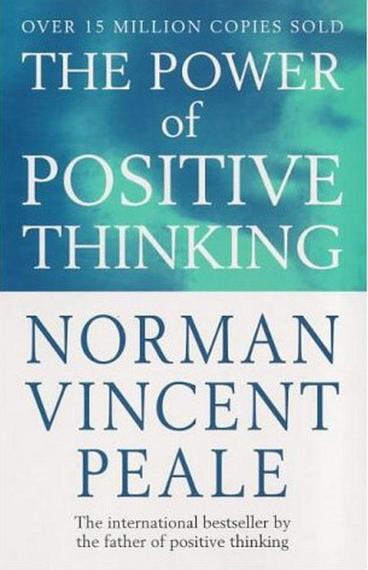 The Power of Positive Thinking by Norman Peale
The Power of Positive Thinking by Norman Peale
The grandaddy of the positive thinking books, Norman Peale’s ‘The Power of Positive Thinking’ set the tone for a raft of positive thinking, self-help books throughout the years. First published in 1953, the book conveys a simple, yet powerful, message: that you can overcome negativity and obstacles in your life by changing the way you think. Peale shows that obstacles in our lives are only there because we allow them to be so.
The teachings set out clearly by Peale in this remarkable book give readers the tools to overcome negative thinking and regain control over their lives. A committed and practising Christian pastor during his life, Peale’s ideas reflect that meditation, positive thought and acceptance of God pave the way to a satisfying and joyful life.
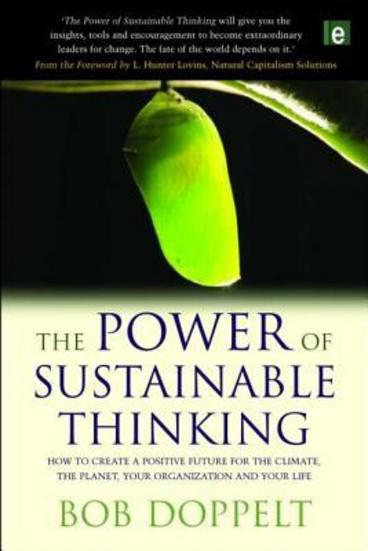 The Power of Sustainable Thinking by Bob Doppelt
The Power of Sustainable Thinking by Bob Doppelt
But why stop at just positive thinking? Why not channel this way of thinking into sustainability, both in individuals and organisations? Bob Doppelt’s remarkable book achieves just that, equating a need for positive minds to help transform the way we think about our environment and therefore change the way we act to develop sustainable solutions to protect our planet.
Divided into two parts, the first outlines the need and reasons for change. The second presents a description of how human minds work, how change can be made and how individuals can change others’ thinking. The author’s compelling argument is that a radical shift in thinking is key to building sustainable energy policies and protecting the environment. He promotes a “Borrow-Use-Replenish” mode of thought, which reflects the fundamental truth that we are just stewards of this precious planet and the need to recycle is paramount for the benefit of future generations.
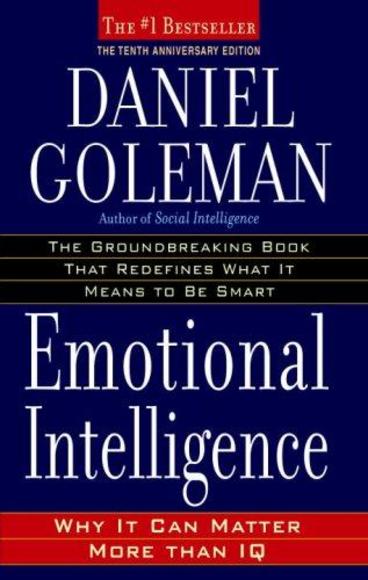 Emotional Intelligence: Why it can matter more than IQ by Daniel Goleman
Emotional Intelligence: Why it can matter more than IQ by Daniel Goleman
What is emotional intelligence and how does it relate to positive thinking? The book introduces the term “emotional intelligence”, a term designed to show the power of harnessing our emotions and conversely, the damage that can be done by not doing so.
The third in his widely-popular series on Emotional Intelligence, the author sums up the question of using our brains to manage our emotions in a more effective way by quoting Aristotle: “Anyone can become angry — that is easy. But to be angry with the right person, to the right degree, at the right time, for the right purpose and in the right way — this is not easy.”
The author’s view on self-discipline, character and control show those who have mastered these qualities tend to excel in life. His point that early intervention to teach emotional literacy is a key point of the book.
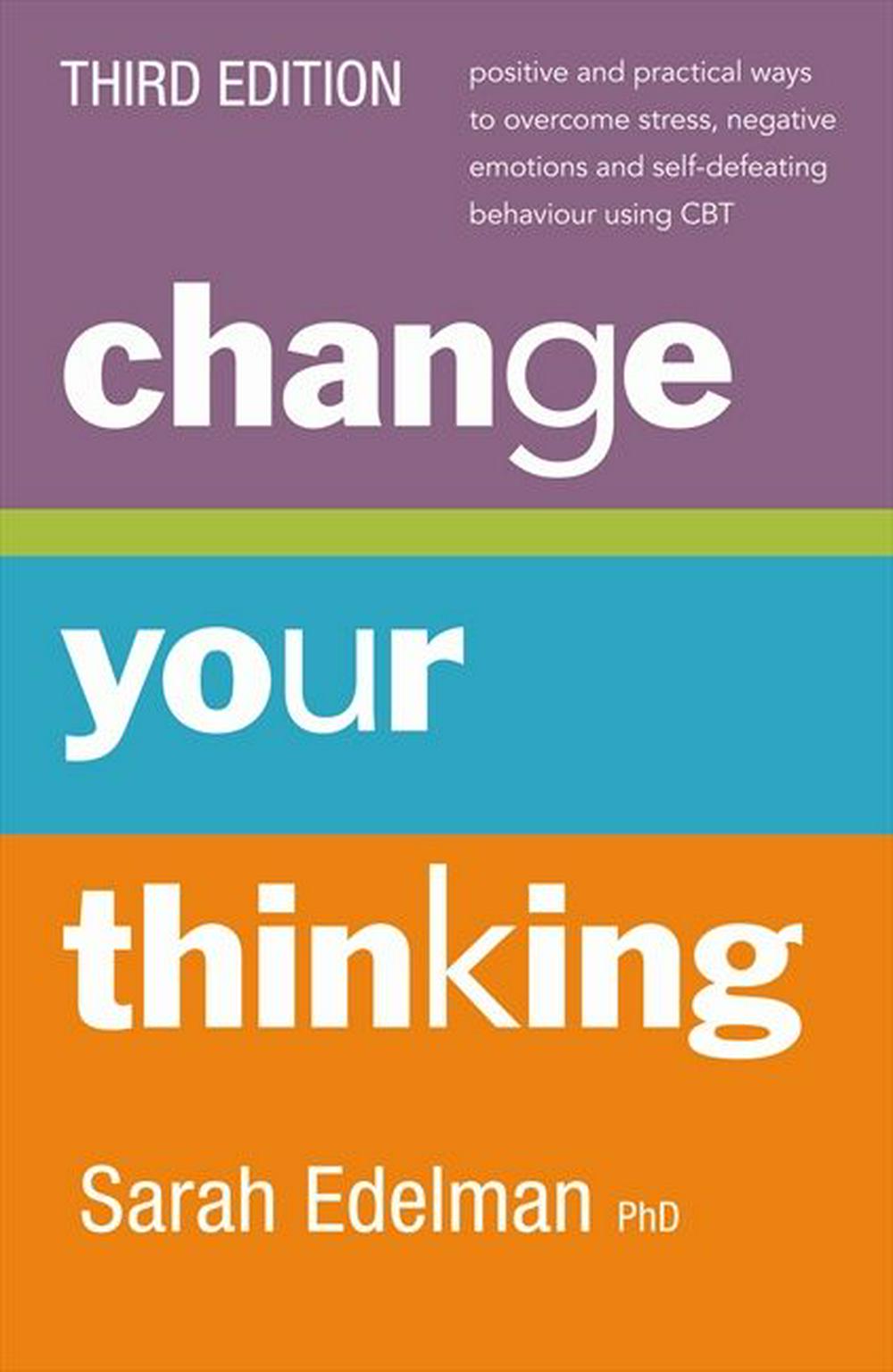 Change Your Thinking by Sarah Edelman
Change Your Thinking by Sarah Edelman
Sydney-based university lecturer and psychologist Dr Sarah Edelman sets out to provide readers with “positive and practical ways” to overcome damaging emotions such as anger, anxiety, frustration and depression.
Integrating mindfulness and CBT in an original and helpful way, the book shows how we can move away from these thoughts and types of behaviour that are, in essence, self-defeating.
The author uses the positive approach of cognitive behaviour therapy to demonstrate how we can develop the right thought patterns to better manage negative emotions, boost self-esteem and help find happiness.
The Antidote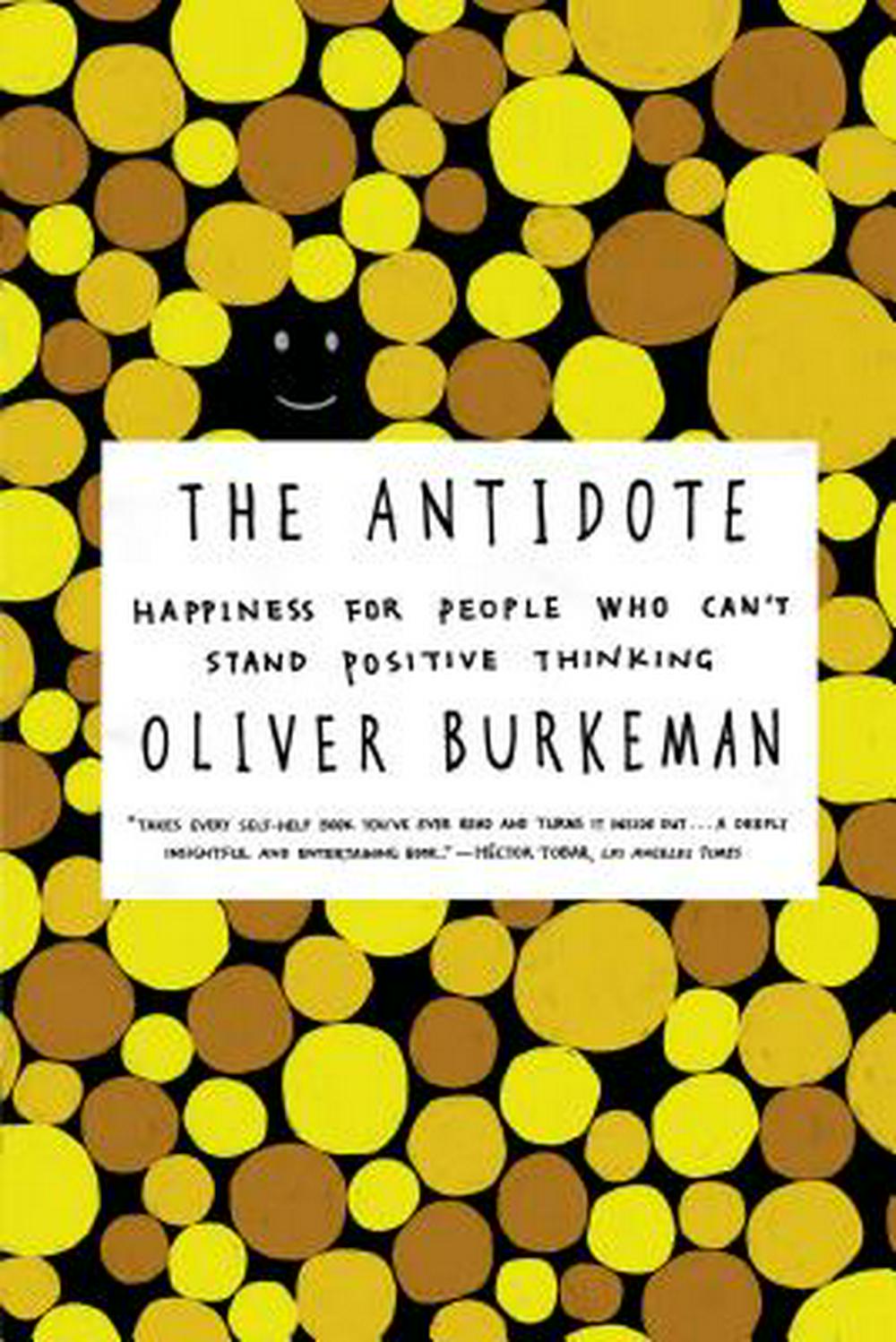 by Oliver Burkeman
by Oliver Burkeman
A sideways and offbeat look at the pursuit of happiness, this original and quirky text is full of wisdom, gentle laughs and bright ideas. Burkeman uses a very British, self-deprecating style of humour to cloak a radical view of the “right” way to go about positive thinking. The sub title “Happiness for people who can’t stand positive thinking,” sums up the book’s tongue-in-cheek approach.
Burkeman writes in an arch, clever and absorbing way that has you smiling one minute, then nodding your head in agreement the next. In essence, he takes on the frantic pursuit of positive thinking and shows there’s another easier way to a more content mind, body and soul.
Horses for courses?
These books also show that it’s not a case of “one size fits all” in the approach to positive thought. Different methods will suit different personality types. However, whether you want to change your life, beat the daily stress and grind or just to learn a little more about how positive thinking can help improve your life, maybe it’s time to challenge the way you think. Slow down, relax and learn with one (or more) of these books!
Happy reading!